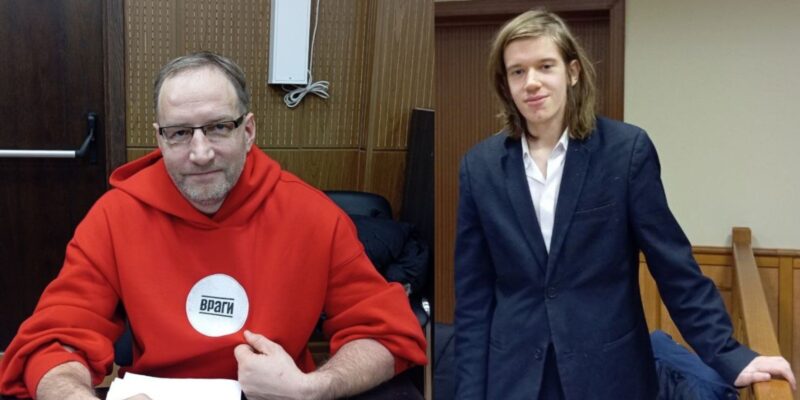Russia: new wave of arrests of journalists

On 27 and 29 December 2023, multiple journalists were detained by police in Moscow. Some of them were awaiting a verdict in the case of a group of activists accused for statements critical of the war in Ukraine. The European Federation of Journalists (EFJ) and its Russian affiliate, the Journalists’ and Media Workers’ Union (JMWU), are demanding the immediate release of these journalists, who were only doing their job.
The police arrested journalist Mikhail Lebedev on 27 December near the Prosecutor General’s Office in Moscow, while he was filming a solidarity picket of activist Oksana Osadcha, who was calling for the release of political prisoner Igor Baryshnikov. The activist was subsequently released, while Mikhail Lebedev was arrested for 20 days for an alleged violation of rallies and assemblies’ rules. The court refused to consider evidence provided by the journalist’s lawyer that he was just doing his job.
On 29 December, the police detained SOTAvision correspondent Yevgeny Kurakin, MSK1 reporter Arina Mayorova, RusNews correspondent Anastasia Shtelvag, as well as an unnamed reporter for Telegram channel SHOT. MediaZona also reported on the detention of an unknown number of correspondents for pro-Kremlin TV channel NTV and online news website Life, however these outlets did not confirm the detentions.
The journalists were covering the so-called “Maïakovski’s trial, in which two poets, Artem Kamardin and Yegor Shtovba, were respectively sentenced to 7 and 5.5 years’ imprisonment for poems deemed to “incite hatred towards the volunteer fighters of the self-proclaimed Donetsk and Lugansk republics”.
According to reports, all journalists detained at the Tversky district court were placed in a police car, but were released soon after, with the exception of Kurakin, who was taken to a local police station. Shtelvag was detained a second time in Moscow already after having left the area, following which she was taken to a police station. She was released before the end of the day with charges of violating Russian laws on public protests, with police having assimilated detained journalists to protesters. It was unclear whether she would be fined on these charges.
Kurakin was later sentenced to 30 days of jail on charges of violating the same laws on protests, which ban any events with more than one participant if they are not explicitly permitted by authorities. In this case too, the court refused to listen to witnesses and to verify the police reports which wrongly claimed that the journalists “shouted slogans”.
“We can’t say that what happened to our colleagues Ledebev and Kurakin is anything new,” said Andrei Jvirblis, Secretary of JMWU. “In recent years, we’ve repeatedly seen journalists charged just for doing their work, while the evidence and testimonies of their evidence were disregarded by the courts. What is new is that this happened on the occasion of more or less large protests. In the past, penalties were generally limited to fines. Today, we are witnessing a new crackdown on journalists just doing their job”.
“The EFJ joins JMWU in denouncing this new wave of repression, which is clearly aimed at dissuading all Russian journalists from covering the protests that are breaking out in Russia,” said EFJ President Maja Sever.











